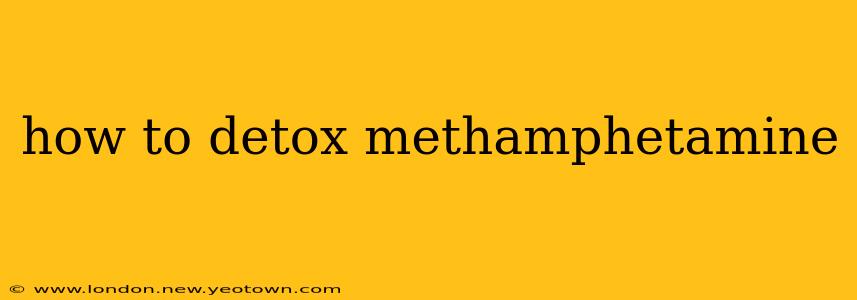How to Detox From Methamphetamine: A Journey to Recovery
Methamphetamine addiction is a serious health crisis, and detoxing is a crucial, yet challenging, first step on the road to recovery. It's not a process to be undertaken lightly, and professional medical guidance is absolutely essential. This isn't a DIY project; it requires expert support to navigate the potentially dangerous physical and psychological withdrawal symptoms. This article aims to shed light on the process, outlining what to expect and emphasizing the importance of professional help. It is crucial to understand that this information is for educational purposes only and should not be considered medical advice. Always consult with a healthcare professional before attempting any detoxification program.
What are the Dangers of Attempting a Meth Detox at Home?
Methamphetamine withdrawal is incredibly dangerous and can be life-threatening if not managed properly by medical professionals. Attempting a detox at home can lead to:
- Severe withdrawal symptoms: These can include intense cravings, agitation, depression, anxiety, fatigue, insomnia, and even psychosis. The severity depends on factors like the length and intensity of the addiction.
- Seizures: Methamphetamine withdrawal can trigger seizures, a potentially fatal complication.
- Cardiac complications: Methamphetamine puts significant strain on the heart, and withdrawal can exacerbate these issues, potentially leading to heart failure.
- Suicidal thoughts: The intense psychological distress associated with meth withdrawal increases the risk of self-harm and suicide.
What Happens During a Medically Supervised Meth Detox?
A medically supervised detox at a specialized facility provides a safe and supportive environment to manage the withdrawal process. Here's what you can expect:
- Medical evaluation: This initial assessment determines the severity of your addiction and any underlying health conditions.
- Medication management: Doctors may prescribe medications to reduce withdrawal symptoms, manage cravings, and address any co-occurring mental health conditions. These medications are carefully selected and administered under close supervision.
- Monitoring: Your vital signs, including heart rate, blood pressure, and temperature, are closely monitored to detect and address any complications.
- Supportive care: The facility provides a safe and supportive environment with trained professionals available to assist you through the withdrawal process. This may include counseling and support groups.
- Nutritional support: Proper nutrition is crucial during detox to help your body recover. The facility will provide adequate nourishment.
- Planning for aftercare: A successful detox is only the first step. Your treatment team will work with you to develop a comprehensive aftercare plan that includes therapy, medication management, and support groups to help prevent relapse.
What is the Duration of a Meth Detox?
The length of a meth detox varies depending on individual factors such as the severity of the addiction, the individual's overall health, and their response to treatment. It can range from several days to several weeks. It's not a race, and the focus should be on a safe and effective detoxification.
What are the Long-Term Treatment Options After Detox?
Detox is just the beginning of the recovery journey. Long-term treatment is crucial for sustained sobriety. This typically involves:
- Therapy: Individual therapy, group therapy, and family therapy can help address underlying mental health issues, develop coping mechanisms, and learn healthy behaviors.
- Medication-assisted treatment (MAT): Certain medications can help reduce cravings and manage withdrawal symptoms, making it easier to stay sober.
- Support groups: Connecting with others facing similar challenges can provide invaluable support and encouragement.
- Relapse prevention planning: This involves identifying triggers, developing coping strategies, and creating a plan for managing cravings and preventing relapse.
How Can I Find Help for Methamphetamine Addiction?
If you or someone you know is struggling with methamphetamine addiction, help is available. You can start by contacting:
- Your primary care physician
- A local mental health clinic
- A substance abuse treatment center
- SAMHSA National Helpline: 1-800-662-HELP (4357)
Remember, recovery is possible. With professional help and support, you can overcome methamphetamine addiction and build a healthier, happier life. Don't hesitate to reach out for help – your life is worth it.

